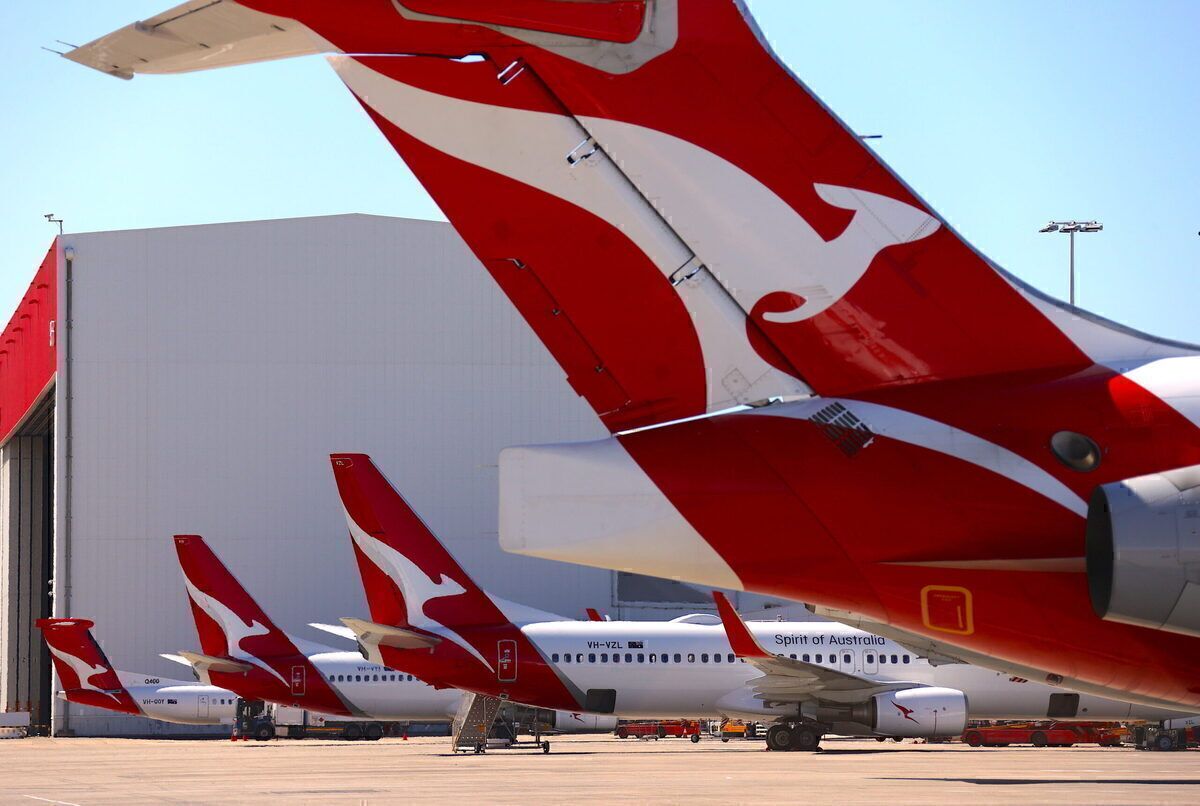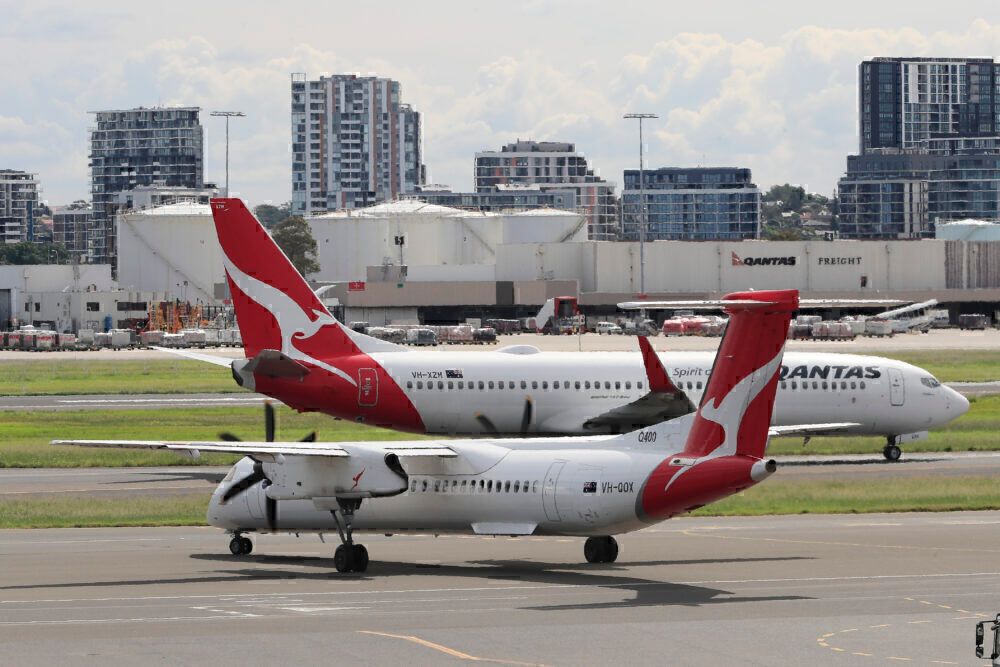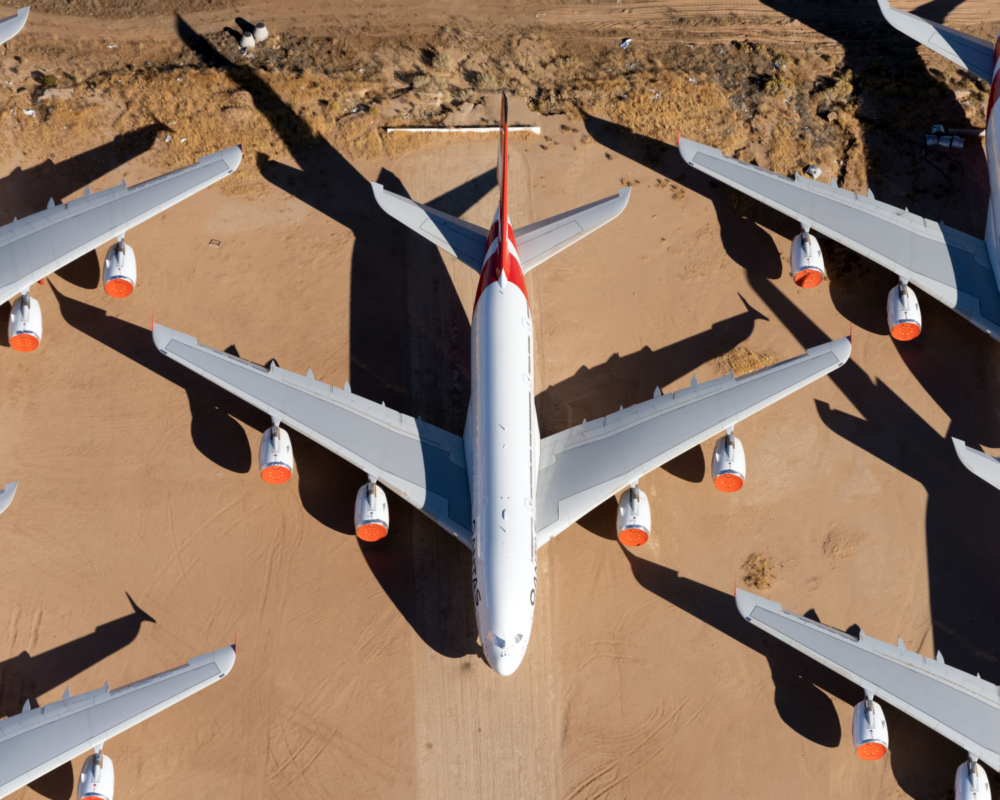Qantas is teaming up with British multinational oil and gas company, BP, forming a strategic partnership to cut carbon emissions in the aviation sector. Long term, Qantas has ambitious net-zero emission goals. The Australian airline has previously set a 2050 timeline to achieve that aim. Short term, Qantas wants to cap its net CO2 emissions at 2019 levels.
Qantas wants to achieve net-zero emissions by 2050
For well over a decade, Qantas has aimed to be a leading airline in environmental sustainability. More recently, Qantas has committed over US$38 million over the next 10 years to the development of a sustainable aviation fuel industry in Australia.
“Airlines globally have a responsibility to cut emissions and combat climate change, particularly once travel demand starts to return," says Qantas Executive, Andrew Parker, in a statement.
"The Qantas Group has set some ambitious targets to be net carbon neutral by 2050 and while offsetting emissions is a big part of that in the next few years, longer-term initiatives like building a sustainable aviation fuel sector in Australia, are key."
Like Qantas, BP has ambitions to become a net-zero emissions business by 2050. In addition to operating a large chain of gas stations around Australia, they are heavily involved in developing alternative energy solutions to oil, natural gas, and liquefied natural gas.
“At BP, we’re focusing on working with corporates in key industrial sectors that currently have significant carbon emissions to manage and need to decarbonize – sectors such as aviation," says BP’s William Lin.
Steps Qantas is taking to cut and offset CO2 emissions
Right now, Qantas currently operates one of the largest carbon offset programs in the aviation industry. The airline says about 10% of passengers across the Qantas Group offset their flights, and the Qantas Group matches this dollar for dollar.
Before the travel downturn, Qantas was also actively working to phase out older, less fuel-efficient aircraft in its fleet. The gas-guzzling Boeing 747-400s went off into retirement in 2020. The equally thirsty Airbus A380s are in long-term storage, and speculation continues about whether they'll ever fly for Qantas again.
In their place are the far more efficient Boeing 787-9 Dreamliners. Qantas was also eyeing the highly fuel-efficient Airbus A350-1000 before the travel downturn caused the airline to put a halt on new aircraft orders. But those A350s are still on Qantas' radar. As are new, fuel-efficient aircraft to replace older Qantas Boeing 737-800 aircraft. Across the mainline Qantas fleet, the average age of its 149 planes is now 13 years.
Qantas says sustainability critical to recovery from downturn
Over the last seven years, Qantas has had an average annual fuel bill of US$2.7 billion. Reducing that fuel expense, typically one of the biggest annual expenses any airline faces, benefits the bottom line at Qantas. But the airline also says it is conscious of working to minimize its impact on the environment. Qantas says aviation produces around 2% of all global CO2 emissions. Despite the travel downturn, Qantas says it remains;
"... committed to continuing to lead the way on sustainable aviation through emissions and waste reduction initiatives. As we move forward, sustainability will be central to the Group’s recovery."
However, when announcing the strategic partnership with bp on Thursday, there was a lack of concrete detail on what exactly the partnership would do to help Qantas achieve its net-zero goals. The announcement was thick with terms like collaboration, partnerships, shared visions, and goals. But with 29 years to go to achieve its net-zero emissions target, Qantas still has plenty of wriggle room.



